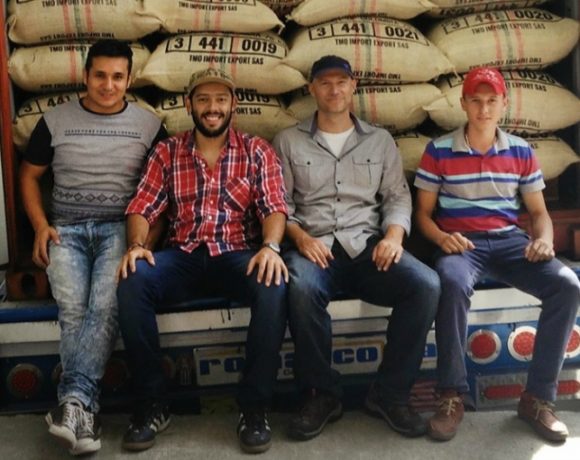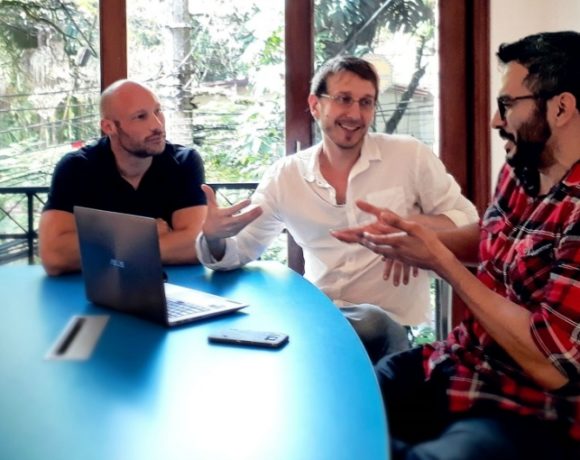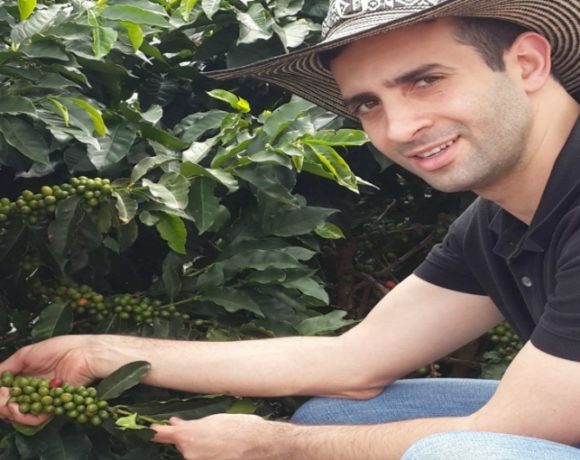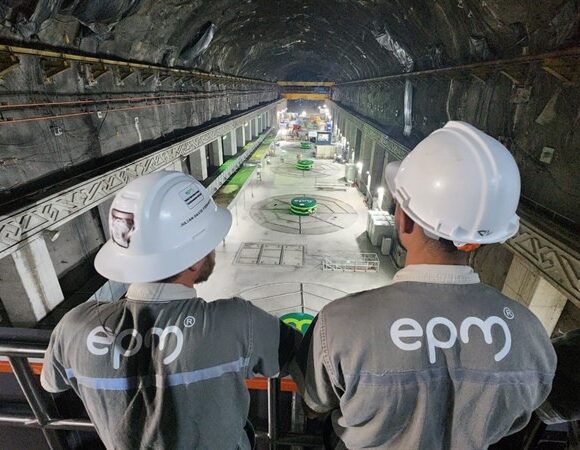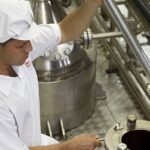Venezuela Crisis Brings Both Tragedy & Triumph to Medellin: Rui Pereira’s Story
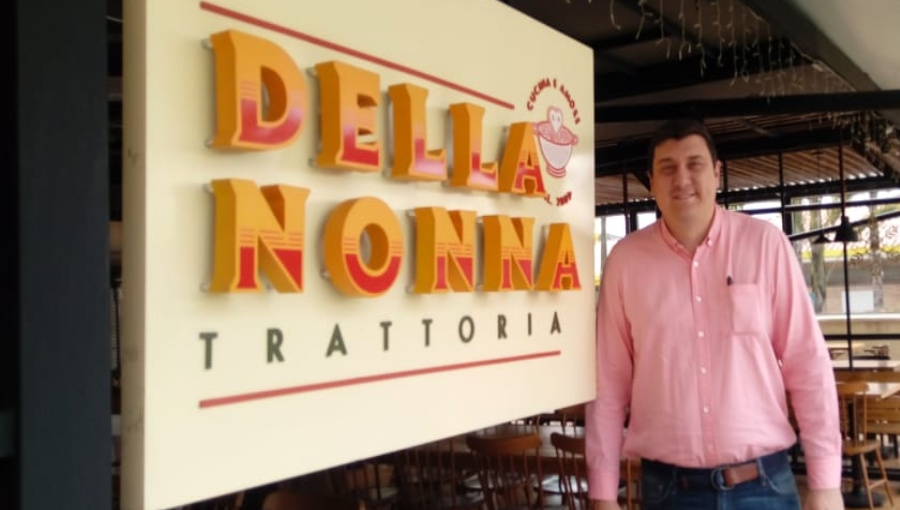
The ever-worsening economic and social crisis in Venezuela — caused by the criminal narco-communist Castro-Chavista dictatorship — is now likely to trigger out-migration of about 25% of the entire population, according to a shocking new study by Washington, DC-based Brookings Institution.
The new study — revealed by Brookings researcher Dany Bahar in a December 12 interview with global TV news network CNN — comes on the heels of recent United Nations studies indicating that at least 3 million Venezuelans have already fled their country in the last three years, with at least 1.3 million of those having emigrated to Colombia.
The Venezuela-crisis statistics are staggering, as noted in a December 2018 special report from Colombian business newspaper La Republica: an estimated 1 million percent inflation this year, more than 500,000 of Venezuela’s former 800,000 private business in bankruptcy, an 88% shortage of critical medicines nationwide, 86% of critical-care units shuttered at hospitals, a 79% shortage of operating-room equipment, 87% of the population falling below the poverty line, a complete destruction of all democratic institutions, and the shuttering or castration of all local independent news outlets by the Cuban-trained, narco-communist military gangsters now in control.
What’s more, it’s becoming increasingly difficult for Venezuelan migrants to obtain work visas here in Colombia, as the surging flood of refugees is outrunning economic and job growth needed to absorb the diaspora.
Fortunately, some Venezuelan emigres already here are helping to ease some of the problems, by starting new businesses, hiring more workers and improving the quality of life for customers, employees and families alike.
One such Venezuelan is 36-year-old Rui Pereira, general manager and majority owner of the growing chain of “Della Nonna” Italian restaurants here in Medellin.
Pereira, the son of Portuguese immigrants to Venezuela, took over his father’s restaurant business in Barquisimeto, Lara state, in 2010 — following 11 years of work and study in the United States, where he won a degree in finance and business administration at Washington College in Maryland, graduating at the top of his class.
Rui’s father – who started-out as a humble, immigrant stock-boy in a supermarket in Venezuela – was as tenacious as his son, working seven days a week, rising to store manager within 18 months. That ferocious work ethic (so typical of many immigrants) and a knack for business convinced another Portuguese immigrant to take him on as a partner in a local restaurant.
Eventually, by 1986, Rui’s father bought-out the partner, and ran the business — successfully — as a single location, for some 20 years.
However, after 11 years in the U.S., son Rui was itching to return to Venezuela, having rocketed to top positions in his mid-to-late-20s as a financial analyst for major real-estate and storage-building companies.
Rui decided it was time to stop working for others and run his own business. Spotting opportunity, he saw that his father’s restaurant business had plateaued, becoming totally dependent – and thus vulnerable – by having just one person facing all customers and suppliers: the father.
So, in order to create growth — and career opportunities – Rui brought fresh initiatives, including sophisticated market analysis, centralized production, improved quality-control, higher throughput volume, greater efficiencies, product segmentation and the hiring of better-quality employees, all made possible by continuing business growth.
As a result, thanks to Rui’s innovations, the original business founded by his father eventually expanded to five retail outlets, along with a separate wholesale food-service operation that supplied 26 other non-affiliated restaurants.
Initially, everything seemed to be going great, which enabled Rui’s father to transition into a more-enjoyable semi-retirement, while Rui simultaneously started to enjoy the fruits of his labors and innovations.
But then came the crash, caused by the economically and socially cancerous actions of the Chavista-Maduro government, which gradually devoured and eventually cut-off crucial financial credit flows of his main foodservice suppliers.
As a result, by 2016, Rui had to shutter the wholesale business, while also laying off more than two-thirds of his restaurant employees –and then selling most of his stock in the crippled business to another partner, at a huge financial loss.
Seeing the ship sinking in Venezuela, Rui and wife Daniela came to Colombia in December 2015, tapping the advice and counsel of a successful brother-in-law here in Medellin. That led him to meet with the former 100% owner of the Della Nonna restaurant in Llanogrande, just east of Medellin.
In subsequent negotiations, Rui managed to acquire 60% of the shares in that restaurant, which he knew required significant upgrades in many areas: infrastructure, management, food-and-wine quality, employee training, supervision, careful attention to details, and market-segment analysis.
As a result, within six months, Della Nonna turned the corner to greater profitability, customer loyalty and business expansion, thanks to Rui and Daniela’s seven-days-a-week hard work, dedication, leadership, years of experience running restaurants and foodservice in Venezuela, plus his considerable finance and business-administration skills honed in the U.S.
Just over a year following the opening of the Llanogrande restaurant, the developer of the Mall del Este mall here in Medellin – and a friend of the original owner of Della Nonna – had a pleasurable lunch at Rui’s restaurant. That mall developer later mentioned to his friend – that is, Rui’s business partner at Llanogrande — that he was looking for a new tenant for a former pizza restaurant at Mall del Este.
That fortunate coincidence of friendships resulted in the mall owner later inviting Rui to negotiate a lease at the Mall del Este location.
Having already established a successful track record at the Llanogrande restaurant — while also winning recommendations from well-connected friends in the Medellin business community – it took Rui only three months to go from initial negotiations to start-up of his second “Della Nonna” restaurant at Mall del Este.
Then, with both the Llanogrande and Mall del Este locations running smoothly, yet another opportunity to expand arose in the Laureles neighborhood in Medellin. That deal likewise moved ahead quickly, with this third location opening in June 2018.
As a result, Rui Pereira now has three Della Nonna restaurants – in just three years – with 85 employees, up from just five when he started here.
“Having a track record is very important here,” Pereira told Medellin Herald. “You must make sure to be surrounded by good people. People with iffy backgrounds don’t get into the club of responsible and successful business people here.
“My brother-in-law, who has been here 10 years and has several companies overseas, has been a great connection for me. He and others can validate you as a serious person, a good person here. I came here with a good idea and lots of experience, but you need to get help from people around you.
“Of my 85 employees, among them are many of my most loyal employees I had in Venezuela, working with me over the last 10 years. I have trust in them and their ways of doing things. They know to anticipate needs, they save time and they improve efficiency.
“That helps explain why I could open one restaurant after another and then another. And we’re accustomed to being a chain operation. When you grow, you’re better-off financially. People don’t want just a salary, they want better lives for their families, and three of the four managers I have, they’ve already brought their families here [from Venezuela].
“About 30% of our employees were either born or raised in Venezuela, and half of them are from families that originally were from Colombia. Only one manager I had in Venezuela I couldn’t bring here fast enough — he’s now in Peru, and doing well.
“It’s getting more difficult for Venezuelans to get work visas here, and many people are so desperate that they’re taking jobs in Colombia at half the [legal] pay, no benefits and almost inhuman conditions,” which naturally provokes resentment among parts of the Colombian working population that see immigrants as a threat to their own jobs – a phenomenon repeated in the U.S. and Europe, and exploited by anti-immigrant, populist politicians.
Sorting-out the emigration crisis is going to take time, Pereira cautioned. “It’s OK to import labor. When you legalize people already here, you must know if they can do the job,” he added.
However, millions of other Venezuelans are unlikely or unable to emigrate, as they may be “too old” to win a new job elsewhere, or else can’t raise the required start-up/relocation cash by selling their homes (“who wants to buy a house in Venezuela?”). Plus, there’s the all-too-familiar part of human nature that refuses to see a train-wreck coming, imagining that somehow “things will get better, but the truth is probably not,” Pereira said.
While Rui Pereira himself paid a heavy price for not getting out of Venezuela before the crash, his education, experience and character are already starting to pay-off here in Medellin – not just for himself, but also for his employees, their families and an ever-growing legion of happy Della Nonna restaurant customers.

